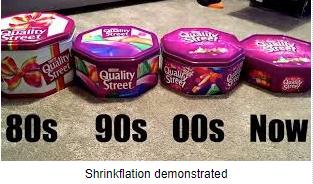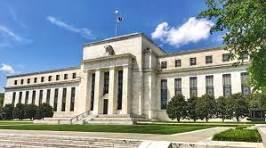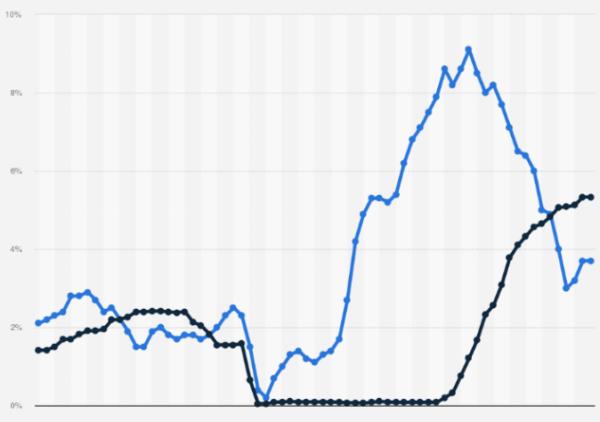Despite the fact that inflation is receding, there is both perception and reality that the prices of food items have not declined in proportion to other items. Deflation has, in large measure, been a reflection of the lower cost of energy although it is generally accepted that a gas price above $3.25 impact budgets and influences voters more than fluctuation in the price of a dozen eggs or a pound of ground beef. In actuality inflation as measured by the Consumer Price Index has declined from 8.9 percent in June 2022 to 3.2 percent in February 2024.

It is apparent that the Presidential re-election campaign will involve messages implying that the food manufacturing and distribution sectors are indulging in “corporate greed” and that prices are unnecessarily high and that unscrupulous companies are employing shrinkflation for packaged goods. This was emphasized in the 2024 State of the Union address and according to polling, resonates with the electorate.

Inflation was an inevitable result of injecting trillions of dollars into the economy in response to the emergence of COVID with widespread disruption of production capacity and consumption. Economists including ex-Treasury Secretary, Larry Sumner warned of the effect of inflation, but this was to be a price to pay to avoid a depression. We did not have soup and breadlines on Wall street or Hoovervilles on the Mall but we still have homelessness and SNAP. Through skill and a measure of luck, the Federal Reserve has guided the economy over the past three years to what is forecast to be a “soft landing” without resulting in mass unemployment. Compared with other industrialized nations, the U.S. has emerged from the pandemic with a relatively strong economy as measured by gross domestic product, with Q4 GDP at 3.2 percent, low unemployment of 3.9 percent in February 2024 and increasing agricultural and industrial productivity.
The Administration message that the food production sector is taking advantage of consumers is incorrect and unjustified. While there may be isolated cases of overt shrinkflation or price gouging, profit margins generated by food producers are consistent with restraint in pricing that is expected in a free market and competitive economy.
 Political rhetoric conveniently forgets the twenty percent increase in wage rates over the past five years. This is reflected in all components of the food production chain from field workers through to serving. Quoted in Politico, Dean Baker a Senior Economist at the right leaning Center for Economic and Political Research, stated, “We are not going to have a world where people get to keep their 20 percent pay increases and pay what they did four years ago for food.
Political rhetoric conveniently forgets the twenty percent increase in wage rates over the past five years. This is reflected in all components of the food production chain from field workers through to serving. Quoted in Politico, Dean Baker a Senior Economist at the right leaning Center for Economic and Political Research, stated, “We are not going to have a world where people get to keep their 20 percent pay increases and pay what they did four years ago for food.
The largesse exhibited during the COVID period comprising Federal funding through the Coronavirus Aid, Relief in Economic Security (CARES) Act of 2020 and the American Rescue Plan of 2021 in all probability averted a depression. Not even the U.S. government can realistically spend the artificial money created. Various Departments including the USDA still hold undistributed funds that should be returned to the Treasury to offset the national debt. Funds made available to the Department of Agriculture have been misused in futile attempts by Secretary Tom Vilsack to restructure protein production. He has consistently attempted to oppose the major packers and broiler integrators through new regulations under the Packers and Stockyards Act. He has distributed vast sums to unproductive projects claiming support for the “disadvantaged and underrepresented” in agriculture. The scale of USDA “giveaways” has intensified this year possibly because administrators and initiators of programs recognize the likelihood of a change in administration that would bring about an end to their activities.

Inverse relationship between ascending Fed rate and deflation |
It is unfortunate that the agricultural sector and the food industry have become targets of political rhetoric through unjust accusations of corporate greed. The Administration has attempted to divert criticism from current disaffection to focus on an essentially innocent industry. This is confirmed in the March 12th release of the Consumer Price Index that documented a 2.2 percent increase in all food on an annual basis with food-at-home up 1.0 percent and food-away-from-home up 4.5 percent, reflecting labor costs.
Given that alleged price gouging and corporate greed will be emphasized as talking points in the coming election campaign, industry associations should prepare rebuttals and be able to counter unjust accusations, applying sound reasoning supported by economic facts.
Subscribers are directed to the Economy Section of the weekly Economy, Energy and Commodity Report in this edition.